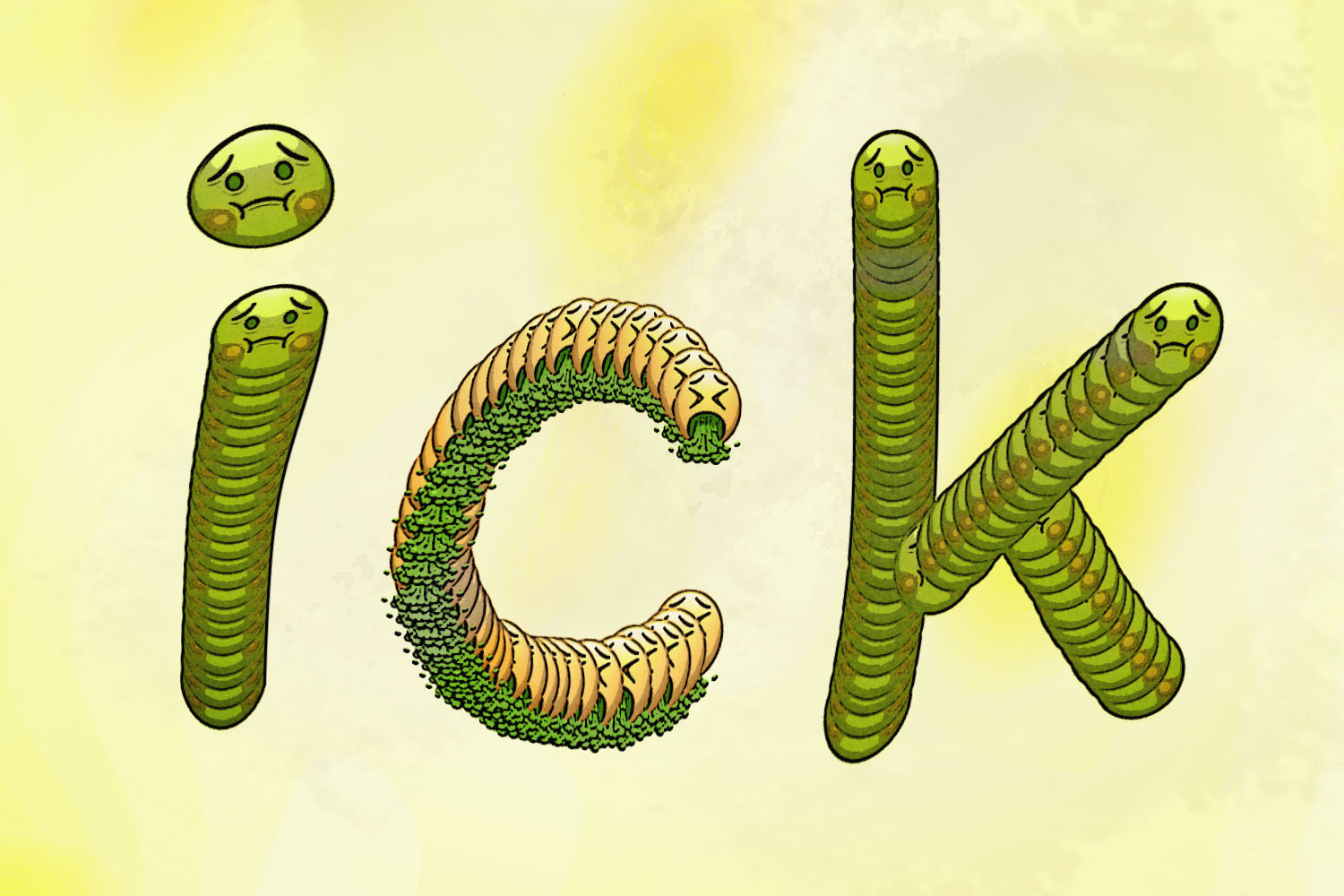We’ve all been there: you’re crushing on someone, fantasizing about them and hey, probably creating an idealized version of them in your head. Maybe things even progress IRL. You hang out, go on a few dates and then bam! You notice something about them, or they do something, that turns you off instantly. Maybe they’re mean to the waiter, kiss strangely or use the wrong laughing emoji. Whatever it is, it’s shattered your fantasy and the possibility of a third date. You’ve gotten “the ick.”
If you’ve spent some time on TikTok within the past year, you’ve probably heard users speak of “the ick.” The hashtags “theick” and “theickisreal” have 147.1 and 17.7 million views respectively, and the videos under the hashtag feature mostly women detailing the things men have done or said that has given them “the ick.”
So what is an ick? Simply, it’s a niche turnoff. When someone experiences “the ick,” it often manifests as a gut sense that causes them to become completely repulsed by a person they’re dating or were previously attracted to, possibly forever.
What causes this unexpected change of heart obviously varies from person to inflicted person, which is why it’s near impossible to avoid giving someone “the ick.” While of course there are some universal icks like witnessing someone you’re dating yell at their mom or pick their nose, many icks, at least by TikTok standards, are completely arbitrary.
Here is a non-exhaustive list of things that have given TikTok users “the ick:”
- Not liking hummus
- Putting his hands up on a rollercoaster
- Standing in a long line
- His music taste
- Playing cricket
- Chasing a rolling tennis ball or ping pong ball on the ground
- Can’t do a cartwheel
- Jumped weird on a trampoline
- Sniffed loudly
- Sat cross-legged
- Sent the Pleading Face emoji
- Had an iPad
- Ate pork
- Studied business
- Was too nice
Again, these put-offs are particular. Arguably unfairly so. But most of these videos are meant to be humorous, and TikTok users who are publicly broadcasting their icks are self-aware, often noting how “easily they get the ick.” Still, “the ick” is a legitimate feeling and dating phenomenon.
Interestingly, the term did not originate from TikTok, but on the popular UK dating show Love Island. According to the Independent, it was coined by contestant Olivia Atwood when she appeared on the reality show in 2017. Atwood used it to describe the relationship between her and a fellow contestant and the inexplicable feeling she had developed towards him:
“When you’ve seen a boy, and got the ick, it doesn’t go,” she said at the time. “It’s caught you, and it’s taken over your body. It’s just ick. I can’t shake it off.”
Speaking with psychologist Becky Spelman, the Independent learned that “the ick” typically begins in the early stages of a relationship and occurs “after a period of mutual attraction, and before the relationship has had time to mature into a settled, long-term situation.” So, don’t expect a seven-year ick.
The first few weeks or months of a relationship are, naturally, a time when both partners are learning about each other — their habits, beliefs, likes and dislikes, hummus preferences, etc. During this period, a person may realize their values don’t align with their partners, invoking “the ick” and potentially forcing them to reevaluate the relationship. Or as Spelman told the Independent, “the ick” is “our unconscious mind reacting to some fundamental incompatibilities between us and the person to whom we were so recently attracted.”
The initial rosy stages of a relationship can mess with our brains. Dopamine levels go up while serotonin levels go down, “to levels that are common in [people] with obsessive-compulsive disorders,” causing us to fixate on our romantic partners, and not think of much else. Additionally, our frontal cortex decreases in activity during this period, which is the part of the brain that helps us plan for the future, make decisions and be judgemental bitches. This decrease in activity might explain why so many of us turn a blind eye to glaring red flags our romantic partners exhibit early on in the relationship.
Once the honeymoon phase fizzles out and your brain starts to come down from its love high, particular habits of your partner you previously ignored might start to crop up and irritate you, causing you to feel what we now call “the ick.”
Unfortunately, once it makes an appearance, the ick can be difficult to get over, meaning the end of your relationship or situationship is likely near.
This doesn’t mean you need to keep your arms tucked in on roller coasters or toss out your iPad to avoid getting dumped. I like to think of “the ick” as an internal North Star, guiding us through a tumultuous, often very weird and confusing dating pool.
Of course, you should be aware of your icks. If someone breaks up with you because you shouted at a waiter, you should stop shouting at waiters. But if someone just can’t get past your aversion to hummus, well, maybe they’re just not the one.
This article was featured in the InsideHook newsletter. Sign up now.
